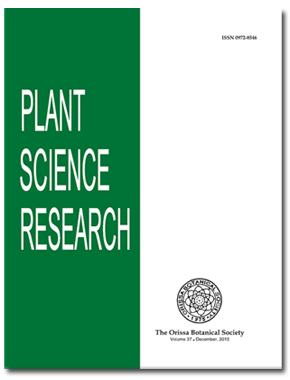
Drimia indica (Roxb) Jessop commonly known as Indian squill, a perennial medicinal bulbous plant, is used in traditional medicine. Cytological studied for four ecotypes were analyzed from Odisha viz. ODi-16 (Khandapada), ODi-22 (Nayagarh), ODi-24 (Daspalla), ODi-26 (Odagaon) and found that diploid chromosome number 2n=20 with a anuploid number from Nayagrah (2n=16). Detailed karyotype analysis showed structural chromosome variations among the ecotypes and high number of secondary constricted chromosomes are available in comparatively higher altitude (178m) from Nayagarh area. Chromosome length varied from 196.36 μm in ODi-22 (Nayagrah) to 211.39 μm in ODi-26. Karyotypes showed more variations in Type A and Type B chromosomes as compared to Type C (Median constricted chromosomes) and Type D (Sub median constricted chromosomes). TF% varied from 31.37% to 34.28%. The occurrence of natural cytological abnormalities with sticky bridge formation, early separation, lagerds, DNA fragmentation in the ecotypes might be due to microevolution and stabilization of chromosomes for adaptation. Chromosome polymorphism could be an important parameter along with morphology and other DNA markers for phylogenetic analysis and species evolution.
2025 © PSR. ALL Rights Reserved. Privacy Policy | Terms of Service